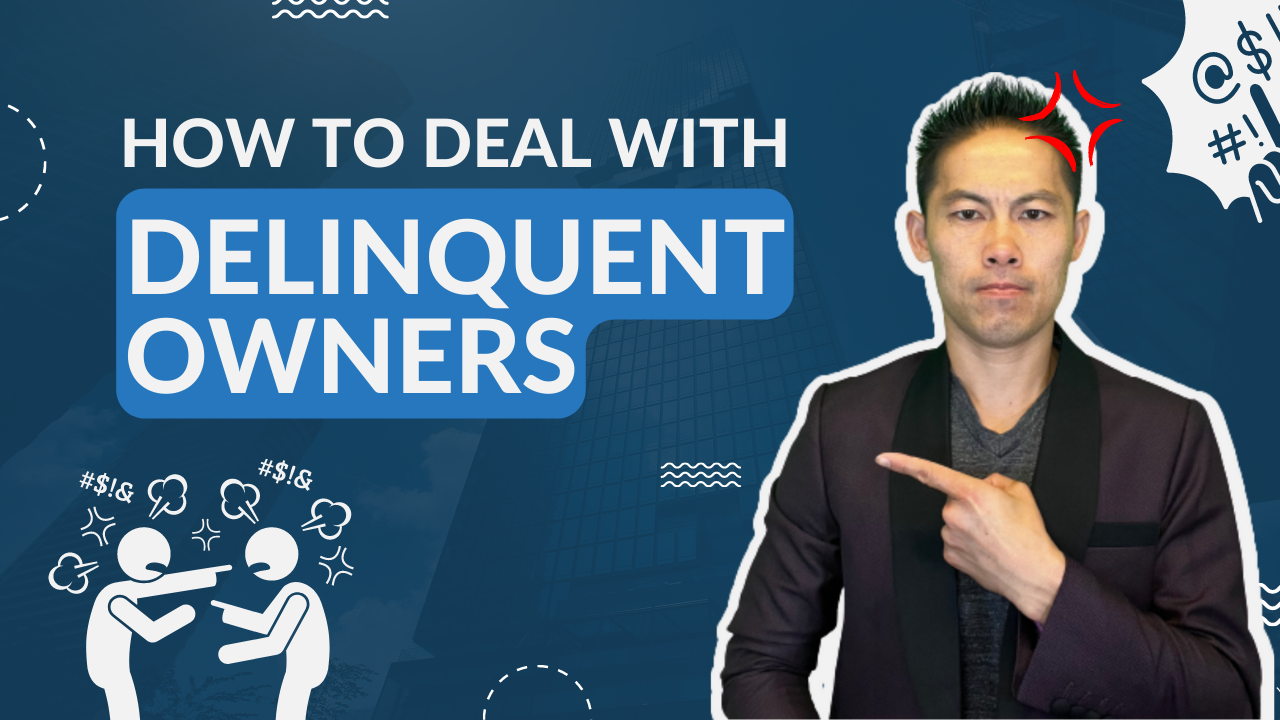In condominium association management, financial stability is paramount. This includes effectively managing delinquent owners and addressing unpaid condo fees.
In this article, we address a common concern among condominium associations and property managers: dealing with delinquent owners and when it becomes necessary to send their unpaid fees to collections.
Defining Delinquent Owners

A delinquent owner, in the context of a condominium association, refers to an individual who fails to make timely payments of their condominium fees, as specified in the association’s rules and regulations or condo documents. Typically, these documents outline the due dates for fee payments, often occurring on the first of each month.
In most cases, when a unit owner fails to make their condo fee payment by the specified due date, which is typically within the first few days of the month, they are considered late and in arrears. The exact grace period for late payments may vary from one association to another.
Handling Late Payments

Many condominium associations have established procedures to address late payments. Below are the common practices for handling late payments:
1. Grace Period
Assess a late fee after a specified grace period, often around 14 days or two weeks after the due date. This grace period is considered ample time for unit owners to submit their overdue payments, even accounting for potential delays in mail delivery.
2. Assessment of Late Fees
After the grace period has passed, typically on the 15th of the month, the late fee is assessed and added to the unit owner’s ledger. The specifics of late fee assessment can vary depending on the association’s rules and regulations.
3. Escalation to Collections
The decision to send delinquent fees to collections depends on the condominium association’s policies and procedures. In many cases, the next significant step involves engaging a specialized attorney who handles collections on behalf of the association.
4. Attorney Involvement
At the 60-day mark from the due date, the attorney begins the collections process. This involves contacting the delinquent unit owner and, when necessary, their financial institution to initiate the collections process.
It’s important to note that this process is carried out within the bounds of the law, and attorney fees incurred during this process are typically added to the unit owner’s ledger.
Every condominium association may handle delinquent fees differently, but adherence to established procedures is paramount. Allowing delinquent payments to accumulate without taking action can disrupt the association’s cash flow and financial stability.
Preventing Recurrence

Consistently enforcing fee payment policies is essential to prevent a recurring issue of late or unpaid fees. When unit owners realize that they cannot evade their financial responsibilities without consequences, they are more likely to comply with payment deadlines.
Manage Delinquent Owners Effectively
Dealing with delinquent owners and managing unpaid condo fees is a critical aspect of condominium association management. Following established procedures and, when necessary, engaging legal professionals experienced in collections can help ensure that the association’s financial health is maintained.
If you require guidance or assistance with condo fee collections or any other aspects of association management, consider seeking advice from experts like Boston HOA Management.





